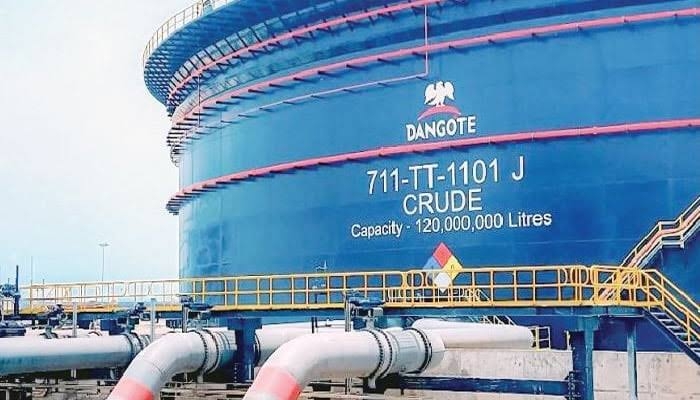A storm is brewing in Nigeria’s downstream oil sector as key industry associations raise alarm over Dangote Refinery’s move to commence nationwide distribution of petroleum products from August 15. The plan—announced by the 650,000 barrels-per-day refinery on June 15—includes the direct distribution of diesel, premium motor spirit (PMS), and compressed natural gas (CNG).
What may appear, on the surface, as a stride toward improved fuel availability is being fiercely contested behind closed doors. Oil marketers across the country, particularly those under the Depot and Petroleum Products Marketers Association of Nigeria (DAPPMAN), the Independent Petroleum Marketers Association of Nigeria (IPMAN), and the Petroleum Products Retail Outlets Owners Association of Nigeria (PETROAN), are currently locked in marathon meetings to strategise a response. Their common concern: the threat of market domination and the looming danger of a monopoly by the Dangote Group.
According to PETROAN president, Billy Gillis-Harry, the scale and approach of Dangote’s distribution plan risk wiping out many existing businesses in the sector. “It’s now that my other sister associations are waking up to realise that this is a big danger that is going to be part of the entire industry,” he said. PETROAN has warned that Dangote’s forward integration model—where a producer also takes control of distribution—could choke out competition and destabilise the industry.
In a formal statement signed by PETROAN’s national PRO, Joseph Obele, the association decried what it described as a “monopoly in disguise.” The group warned of sweeping job losses if the refinery’s pricing and logistics strategies undercut existing players. “This could lead to a massive shutdown of filling stations across Nigeria, resulting in widespread job losses,” the statement reads.
Among the most concerning developments for marketers is the plan by Dangote to deploy 4,000 CNG-powered tankers—vehicles that offer lower transport costs and environmental benefits. While this innovation may appear forward-thinking, PETROAN argues that it risks putting thousands of independent truck drivers and small fleet operators out of work.
The association also highlighted how Dangote’s scale—unique in Africa—enables it to produce at global refinery levels while also controlling retail distribution, a move that effectively blurs the line between upstream production and downstream commerce. PETROAN insists that this kind of market leverage could be used to manipulate prices, suffocate modular refineries, and bypass local suppliers and distributors.
The concerns voiced echo earlier analysis that while Dangote’s refinery brings hope for energy independence, it also raises red flags about unchecked market dominance. The refinery’s push to halt fuel imports and control supply channels could tilt the sector dangerously in favour of a single player, endangering Nigeria’s competitive energy landscape.
As tension builds, marketers are expected to issue a unified statement in the coming days. But the underlying question remains: will regulatory authorities step in to prevent market imbalance, or will the downstream sector be left at the mercy of a single industrial giant?
